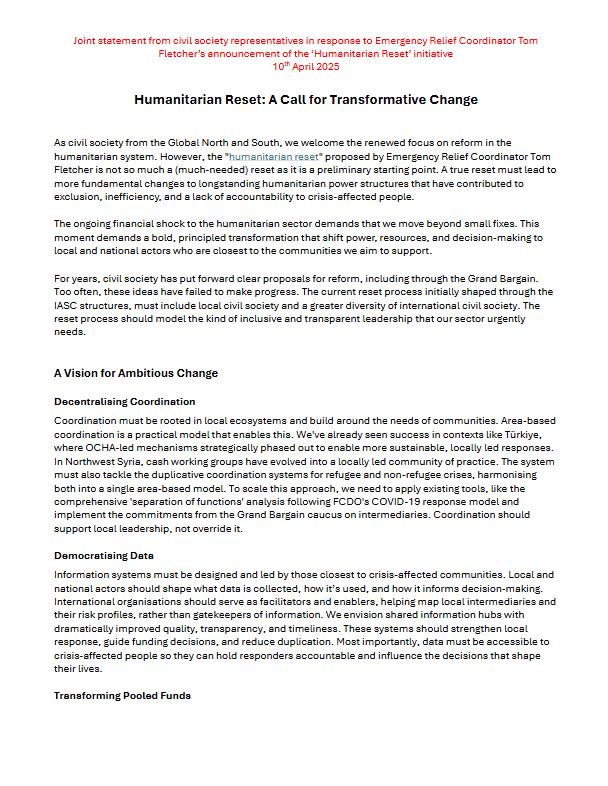ASAL Humanitarian Network (AHN)
GLOBAL CIVIL SOCIETY LEADERS CALL FOR A HUMANITARIAN RESET THAT SHIFTS POWER, RESOURCES, AND DECISION-MAKING TO LOCAL ACTORS
Joint Civil Society Statement – Humanitarian Reset and the Call for Transformative Change
Local, national, and international civil society representatives urge bold reform to decentralise coordination, democratise data, transform pooled funds, and strengthen community-led accountability.
On 10th April 2025, civil society representatives from the Global South and North released a joint statement in response to Emergency Relief Coordinator Tom Fletcher’s “Humanitarian Reset” initiative. The signatories welcomed the renewed focus on reform but emphasised that a genuine reset must go beyond surface-level adjustments. It must address the structural power imbalances that have long constrained effectiveness and accountability in the humanitarian system, ensuring that decision-making and resources move closer to crisis-affected communities.
The statement articulates a shared vision for ambitious change anchored in four pillars: decentralising coordination, democratising data, transforming pooled funds, and community-driven accountability. Each calls for the reorientation of global humanitarian systems toward local leadership, inclusive decision-making, and transparency. Civil society underscores that coordination should enable local ecosystems rather than override them, and that data collection and use must be led by those closest to affected populations.
To realise this transformation, the statement proposes a two-phase roadmap over twelve months. The first phase (3–6 months) focuses on co-designing reform processes with inclusive participation from civil society, donors, and UN agencies. The second phase (6–12 months) envisions a structural shift where international organisations transition from implementers to enablers, pooled funds become locally accessible, and accountability to crisis-affected populations becomes the central metric of success.
The joint statement concludes that “the future of humanitarian action is local.” It calls for sustained political will and practical commitment from all stakeholders to deliver a reset that strengthens trust, equity, and collaboration across the global humanitarian system.

